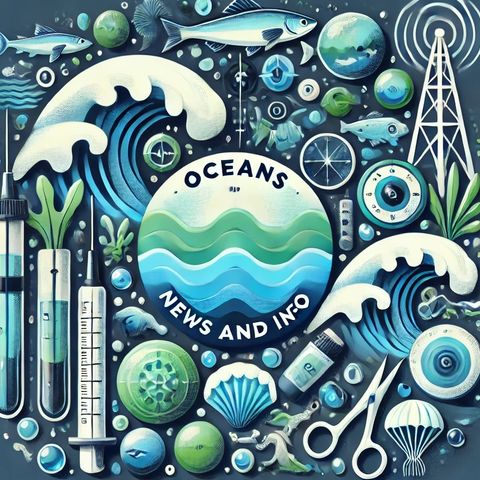Coral Reef Veterinarians: The Unsung Heroes Shielding Coastal Communities from Hurricane Devastation

Download and listen anywhere
Download your favorite episodes and enjoy them, wherever you are! Sign up or log in now to access offline listening.
Coral Reef Veterinarians: The Unsung Heroes Shielding Coastal Communities from Hurricane Devastation
This is an automatically generated transcript. Please note that complete accuracy is not guaranteed.
Description
Hurricanes pose a significant threat to coastal communities, with their powerful winds and surging tides causing extensive damage. However, there's a surprising ally in the fight against these natural disasters:...
show moreStony coral tissue loss disease, a newly identified threat to coral reefs, highlights the urgency of this issue. USGS biologists working to understand this disease spend countless hours peering through microscopes at tiny polyps and algal cells. These minuscule organisms play a huge role in the larger marine ecosystem, demonstrating how seemingly little disturbances can have massive impacts.
Coral reefs act as natural barriers, absorbing wave energy and reducing the force and height of incoming waves. This results in less powerful storm surges reaching the shore, thereby diminishing the potential damage to coastal infrastructure. Stony corals, in particular, are integral to this process due to their hard, durable structures, which can withstand significant wave action.
The stony coral tissue loss disease, however, is decimating these crucial organisms. This disease literally eats away at the very tissue that supports the coral structure, leading to a decline in reef health and effectiveness. Left unchecked, it could render coral reefs less capable of providing coastal protection, exacerbating the effects of hurricanes on vulnerable communities.
The stakes are high; protecting coral reefs is not just about preserving marine biodiversity, but also about maintaining a natural shield against some of nature's most destructive forces. By investing in the study and treatment of coral diseases, we are ultimately investing in the preservation of both marine life and human lives.
In light of this, biologists are being likened to "coral reef veterinarians." Their mission is to diagnose and develop treatments for the afflicted reefs, much like veterinarians do for ailing pets. These scientists employ a range of methods, from culturing coral cells in controlled environments to fieldwork that involves direct intervention in ocean habitats.
The research can be painstakingly detailed, with microscopy at its core. By examining polyps and algal cells, biologists can identify the pathogens responsible for the tissue loss disease and understand how they interact with the coral host. Such insights are critical for devising effective treatments.
Despite the microscopic focus of their work, the implications are vast. A healthier reef means stronger natural defenses against hurricanes. USGS biologists are at the frontline of this battle, their work a fusion of marine biology and emergency preparedness.
Maintaining the health of coral reefs thus emerges as a multidisciplinary challenge, requiring the collaboration of scientists, policymakers, and local communities. Public awareness and support are equally crucial. As coastal populations grow and climate change intensifies, the role of coral reefs in coastal protection becomes even more indispensable.
By fortifying these natural barriers, we not only conserve unique marine ecosystems but also bolster our defenses against the increasing threat of hurricanes. Coral reef veterinarians may seem a surprising defender against these storms, but their contributions could make the difference between calamity and resilience for countless coastal communities.
Information
| Author | QP-4 |
| Organization | William Corbin |
| Website | - |
| Tags |
Copyright 2024 - Spreaker Inc. an iHeartMedia Company
